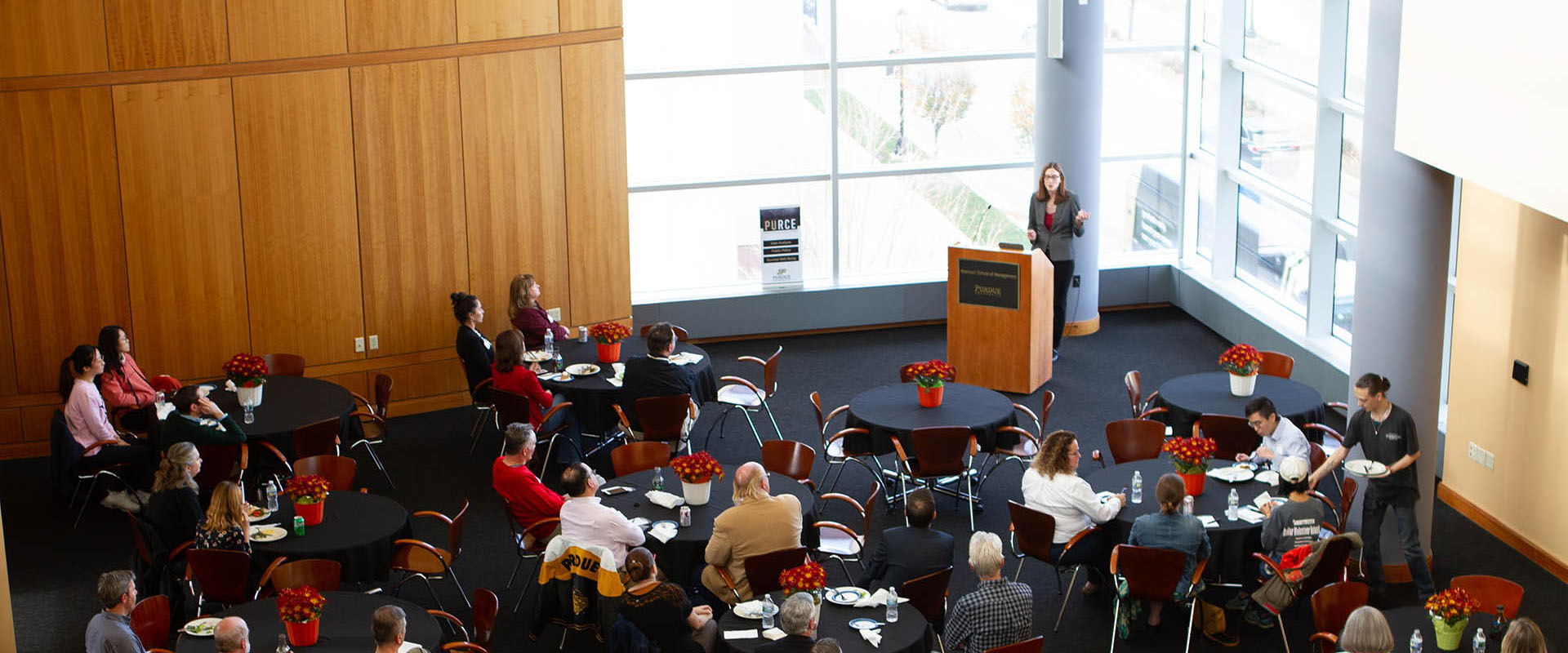
The story of the Purdue University Research Center in Economics, which celebrates its 10th anniversary in 2023, starts with a vision.
“For as long as I can remember I thought it would be a good idea for our school to have a group of economists all working on a similar set of problems,” John Umbeck says. “Namely, regulation, since it’s a pervasive force in our economy ever since the United States has been established and it has a tremendous impact on all of us.”
Umbeck is a celebrated Purdue business school economics professor, public speaker, and researcher. He’s also adept at sourcing funding and made the initial moves to form a new research center a decade ago.
By sheer coincidence, Umbeck discovered that then-Purdue University President Mitch Daniels and his deputy chief of staff Spencer Deery were working toward an eerily similar goal.

Umbeck was at Disney World with his family when he got a call from Deery, who relayed Daniels’ wish to form a free market research center. They decided it made sense to merge their efforts.
Citing his skills as a former door-to-door salesman, Umbeck started drumming up funds with help from Daniels. Umbeck says the president was a tremendous supporter of the center’s formation, which gained momentum in 2013.
Deery acted as a catalyst who eliminated red tape any time it cropped up. “Any entity as large as Purdue has some red tape and bureaucracy,” Deery, now an Indiana State Senator, says. “John and I got into a pretty good habit of letting John work and do his thing. And then when he would run into a problem, he’d reach out to me and I’d try and nudge things along with help from the weight of the office of the president.”
Umbeck concurs. “I kept running into red tape, and I would call Spencer and pretty soon, there’s no tape! It was impressive. He was very helpful,” he says.
Umbeck also worked closely with Professors Jack Barron, recently retired, and Justin Tobias, then head of the Economics department.
“My primary role as head was to determine how PURCE could help strengthen the Economics department,” Tobias says. Through its decade-long existence, the center has funded econ faculty lines — seven in 2021-22.
“We don't start with conclusions and work backwards. We follow the evidence to the results that are supported by the data. And our scholars are teaching the next generation of economists these research methods.”
Kevin Mumford, Professor of Economics, Kozuch Director, PURCE
The Purdue University Research Center in Economics (PURCE) —known as Purdue’s Economics Research Center, or PERC, at the time — was officially recognized as a university center on February 2, 2014, with Umbeck as director.
A memo documenting the approval of the center highlights the small scale of the operation. It allocates “cubicle spaces” for new PhD students “in the basement floor of the Krannert building.” The memo also clarified that “no additional space [would] be required.”
That statement was rendered inaccurate, as PURCE became more successful than any of its founders could have predicted. Umbeck says that they started by funding graduate students to study economics.
“The next thing I knew we were funding faculty positions,” he says.
PURCE was elevated from the basement to the newly renovated third floor of the Krannert building in 2017. Today the center boasts more than 30 faculty affiliates across all fields of economics, strengthening the presence of fields like public economics, labor economics, and empirical macroeconomics.
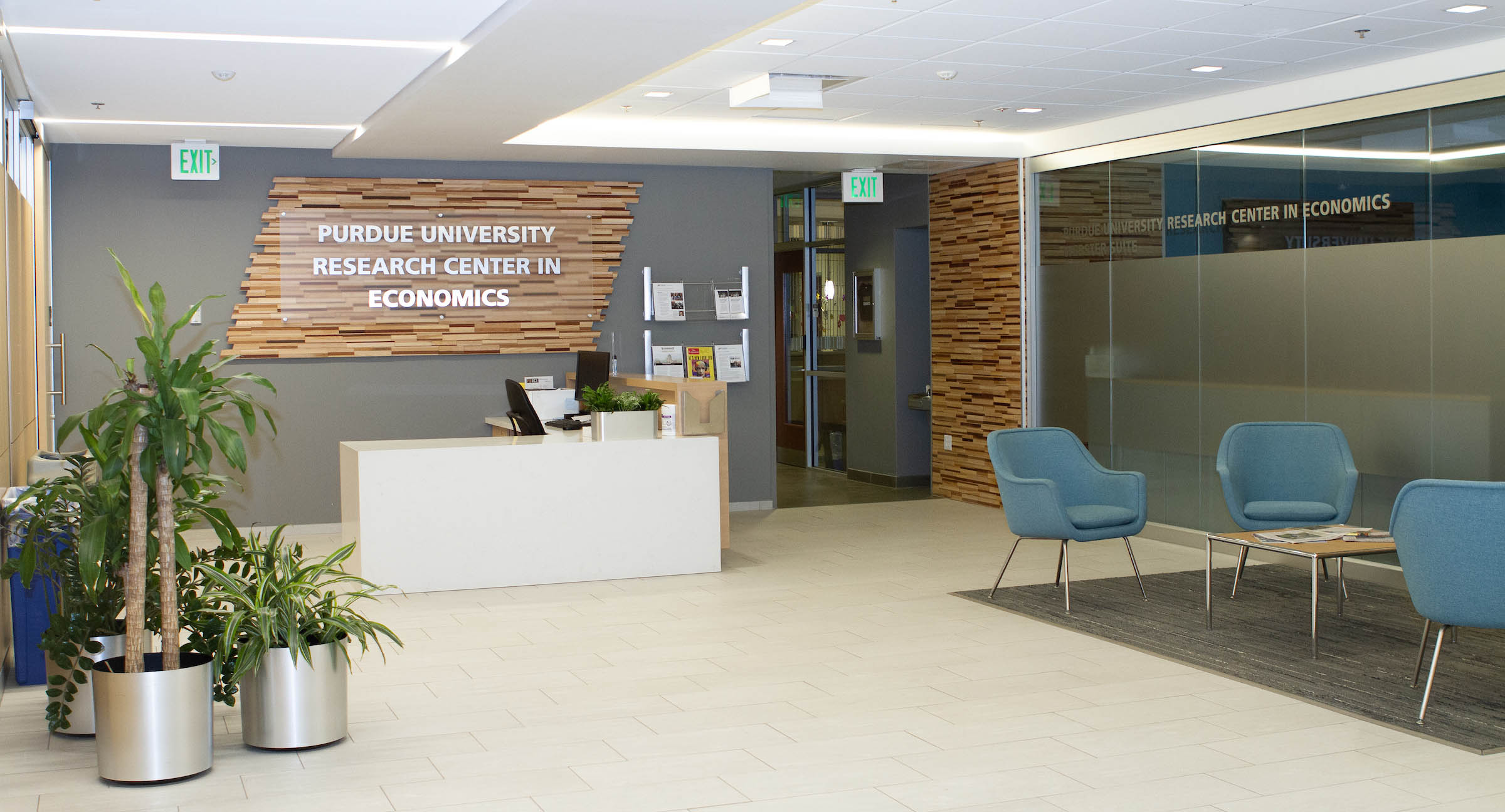
The center’s mission, as articulated by current director Kevin Mumford, is to conduct and share data-driven research into how laws, regulations, and government programs affect the market economy and the well-being of individuals and society. Center faculty affiliates and econ PhD students produce objective empirical analysis in areas including competition, crime, education, fiscal policy, health, innovation, market solutions, state policies, trade, and work.
The center’s staff consists of a marketing specialist and a senior administrative assistant. Aided by student employees, a part-time communications consultant, and the Purdue business school community, all work to fulfill the center’s mission of providing data and information that can lead to more informed policy decisions.
“We want to get people and policy makers interested in economic research that otherwise might just sit on a shelf in an academic journal,” Mumford says.
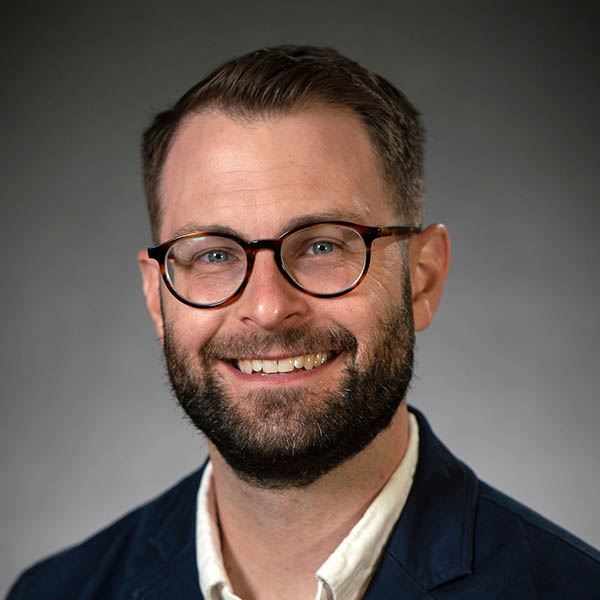
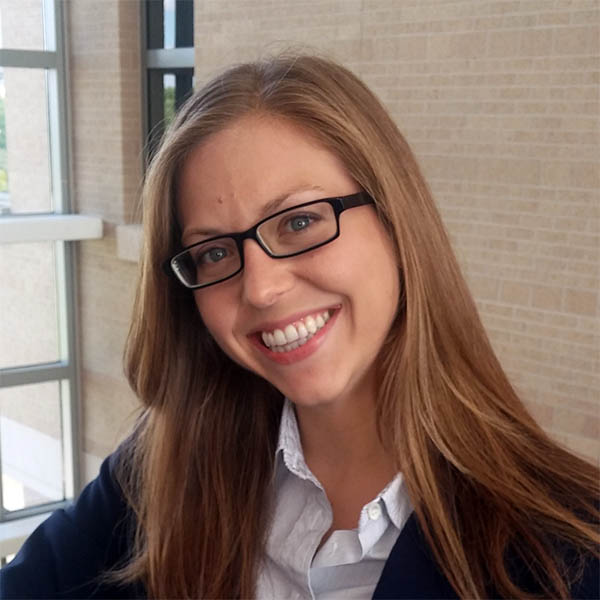
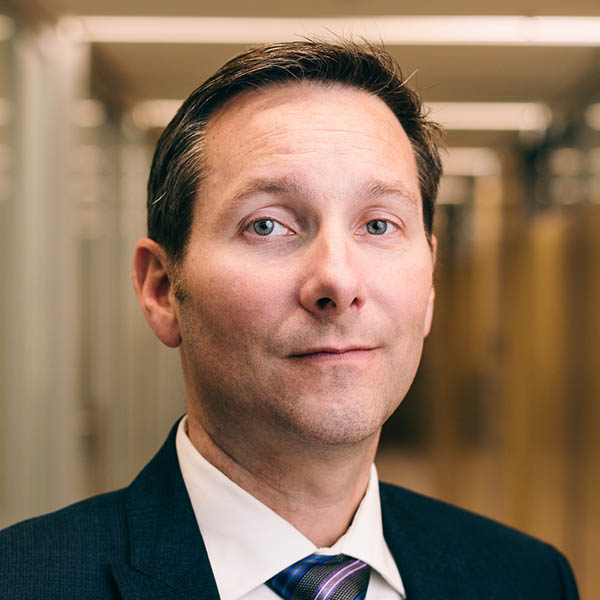
Starting with Mumford being named director at the beginning of the 2018-19 academic year, PURCE began hosting regular events, including a monthly faculty talk for area community and business leaders and information sessions for state lawmakers and other government leaders. The center maintains congenial relationships with fellow policy centers like George Mason University’s Mercatus Center and works closely with Purdue’s Office of Government Relations and the Purdue business school’s development office. The center subsists on the support of a wide variety of donors, from foundations to local business and community leaders.
In recognition of a large gift to the center, Mumford’s position was named the Kozuch Director of PURCE in August 2019. He notes that PURCE’s future is secure thanks to the generosity of donors and the efforts of faculty and staff who believe in the center’s mission.
Mumford emphasizes that the center doesn’t speak with one voice.
“Whichever way the empirical evidence goes, that’s the message. You don’t have to check with the center director before you say something; faculty affiliates and PhD students have the freedom to follow the evidence.”
“We don’t start with conclusions and work backwards,” Mumford says. “We follow the empirical evidence to the results that are supported by the data. And our scholars are teaching the next generation of economists these research methods.”
Let us tell you about the innovative ways we are evolving education at Purdue's business school.